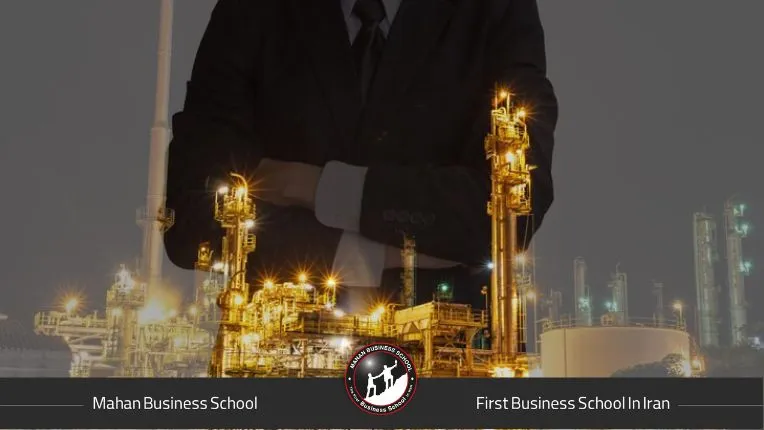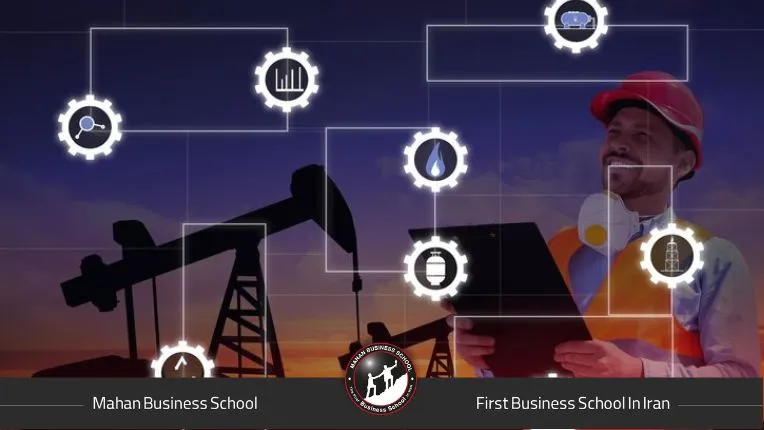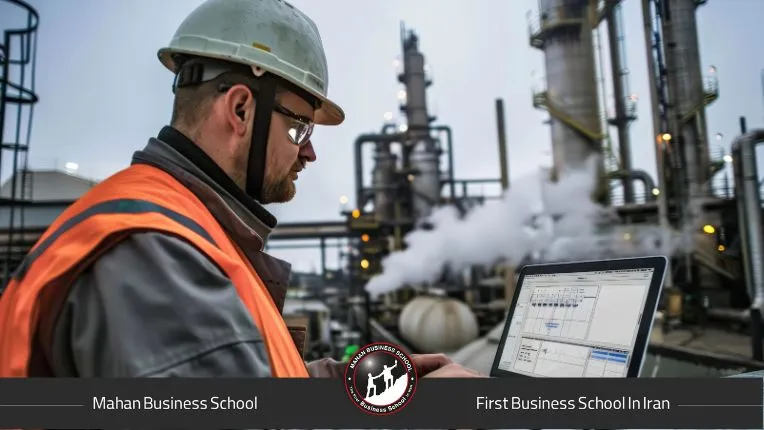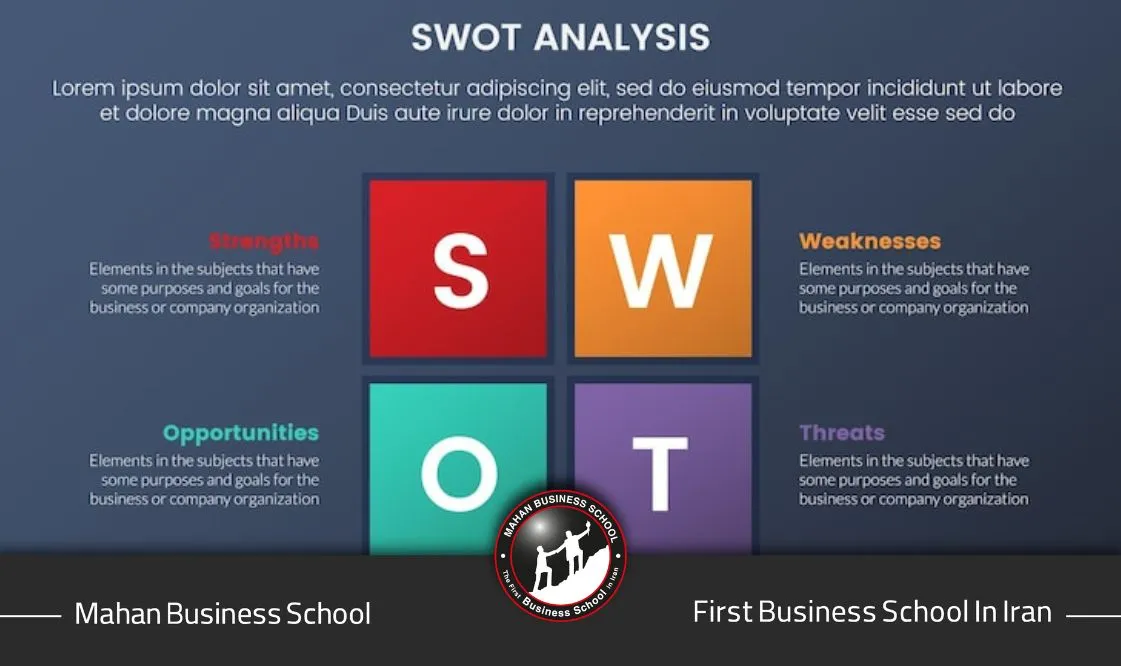Have you ever been involved in a large-scale oil project and thought, “If I were the project manager, I would have made this decision differently”? Or perhaps you are a talented chemical engineer who feels that your technical expertise alone is not enough to reach senior management positions. This scenario reflects the experience of many top professionals in Iran’s oil, gas, and petrochemical industry—a sector that is the heartbeat of the country’s economy, yet leadership in it requires more than just technical knowledge.
This is where the MBA in Oil and Gas acts as a strategic bridge, connecting you from the world of technical operations to the boardroom and high-level decision-making. This program is not merely a collection of theoretical courses; it is a comprehensive toolkit for becoming a manager who fluently speaks the common language of engineers, finance professionals, and market strategists.
The purpose of this article is clear: by the end of this read, you will have a comprehensive and clear understanding of the MBA in Oil and Gas, and you will see why this program can be the smartest investment for your career future.
What is an MBA in Oil and Gas? A VIP Pass to Enter the World of Energy Giants

Simply put, the MBA in Oil and Gas is an advanced business management program specifically designed to address the unique challenges and opportunities of the energy industry. Unlike a general MBA, this specialization equips you with the specialized knowledge needed to manage one of the most complex and profitable industries in the world.
Imagine learning the principles of finance, marketing, and leadership while all your examples, case studies, and projects are directly related to the real-world challenges of the oil industry—from risk management in drilling projects to international marketing for petrochemical products. This is the added value that an MBA in the oil sector provides. The program combines general managerial knowledge with deep industry insights, shaping you into a versatile and well-rounded leader.
Who is This Program Designed For? (Target Audience)

You might be wondering, “Is this program right for me?” If you belong to any of the following groups, the answer is yes:
- Engineers and Technical Specialists: Oil, chemical, mechanical, and other technical engineers who have spent years in operational roles and are now seeking to transition into managerial and strategic positions.
- Middle Managers and Supervisors: Project managers, production supervisors, and department heads who wish to formalize their managerial knowledge and prepare for higher-level leadership positions.
Finance and Business Professionals: Specialists working in finance, supply chain, or sales within oil companies who need a deeper understanding of the technical and operational aspects of the industry.
Consultants and Analysts: Professionals who provide advisory services to energy companies and wish to enhance their credibility and expertise.
Entrepreneurs: Founders of startups and service companies in the oil and gas sector who require comprehensive managerial knowledge to grow their businesses.
Essentially, the MBA in Oil and Gas Management is designed for any professional who envisions their future in key leadership positions within this dynamic industry.
Why Investing in an MBA in Oil and Gas Is the Smartest Career Decision You Can Make
Let’s be honest: pursuing an MBA requires both time and financial investment. So why is it worthwhile? The answer lies in the long-term benefits that directly impact your career trajectory and earning potential. According to industry reports, managers with a specialized MBA not only have a higher chance of securing key positions but also earn, on average, higher salaries (source: a reputable study such as Glassdoor or salary surveys).
Key Benefits of an MBA in Oil, Gas, and Petrochemicals

- Creating a Strong Competitive Advantage: In the job market for various MBA specializations, which is filled with technical experts, having managerial knowledge sets you apart from the rest.
- Increasing Earning Potential: Graduates of this program typically advance to higher-paying roles such as project management, senior energy market analyst, or business development manager.
Networking with Top Executives: MBA classes offer a unique opportunity to connect with distinguished faculty and classmates who are themselves the future leaders and experts of the industry. This professional network will become one of your most valuable assets. (For more insights, read our article on how to network effectively at industry events.)
- Gaining a 360-Degree Perspective: You learn how to view an energy organization as an integrated system—from exploration and production to sales and international legal matters.
What Skills Will You Gain in the MBA in Oil, Gas, and Petrochemicals Program?

The MBA in Oil, Gas, and Petrochemicals goes beyond theory and focuses on practical skills:
Strategic Management: Developing long-term strategies for company growth in the volatile energy markets.
- Energy Economics and Geopolitics: Analyzing the impact of global policies and international oil prices on your business.
Financial Management and Investment: Conducting economic evaluations of large-scale oil projects and securing funding for them.
- Risk Management in Large Projects: Identifying and controlling financial, operational, and environmental risks. (Want to learn more? Don’t miss our post on 5 Risk Management Techniques for Petrochemical Projects.)
- Leadership and Management of Multidisciplinary Teams: Guiding teams made up of engineers, geologists, and business management experts.
Your Roadmap in the MBA in Oil and Gas Program (Core Subjects and Key Courses)
Although the curriculum may vary slightly across institutions, the overall structure of an MBA in the oil industry typically includes a combination of core managerial courses and specialized energy industry subjects.
Core Managerial Courses (Core Business Modules):
- Principles of Management and Organization
- Advanced Strategic Management
- Marketing Management
- Human Resource Management
- Principles of Accounting and Financial Management
- Organizational Behavior
Oil and Gas Specialized Courses (Specialized Modules):
- Oil and Gas Economics and International Energy Markets
- Oil, Gas, and Petrochemical Project Management
- International Oil and Gas Contracts (IPC, Buyback, etc.)
Supply Chain Management in the Oil Industry
- Risk and Safety Management (HSE)
- Energy Law and Regulatory Affairs
- Marketing and Sales of Oil and Petrochemical Products
This combination ensures that you not only gain a solid understanding of business fundamentals but also apply this knowledge in practice to solve real-world industry challenges.
Program Certification: Beyond a Diploma, a Global Credential
The MBA in Oil and Gas Management certificate from a reputable institution is your key to new opportunities. This certification demonstrates to employers that you:
- Are proficient in modern management principles.
- Have a deep understanding of the complexities of the energy industry.
- Are prepared to take on greater responsibilities and lead teams.
Many reputable institutions offer certificates with internationally verifiable credentials, which can be highly valuable for those seeking career opportunities in multinational companies.
Career Prospects After Graduation: What Opportunities Await You?
This may be the most important question. Graduates of the MBA in Oil and Gas can pursue a wide range of strategic and high-paying career opportunities:
Project Manager: Leading multi-million-dollar projects in exploration, refinery construction, or gas field development.
Business Development Manager: Identifying new investment opportunities and negotiating major contracts.
Senior Energy Market Analyst: Analyzing global market trends and providing strategic insights to decision-makers.
- the board of directors.
Energy Management Consultant: Providing advisory services to large public and private companies.
Operations Manager: Optimizing production processes and reducing costs in operational units.
Finance Manager: Managing the financial portfolio and investments of an energy company.
For more details, you can read our report on high-paying jobs in Iran’s oil industry.
Conclusion: Your Next Step Toward Leadership in the Energy Industry
Iran’s oil, gas, and petrochemical industry—despite all its challenges—remains one of the main pillars of the economy and an exceptional platform for professional growth. Yet, to reach the peak of this industry, technical expertise alone is no longer enough. The Oil and Gas MBA program is the missing link that connects your technical knowledge with managerial and strategic skills, preparing you for the leadership challenges of the 21st century.
This program is a direct investment in your future—a future in which you will not only be an implementer, but also a key decision-maker and strategist.
Now it’s your turn. Are you ready to take the next step in your career? What is the biggest management challenge you are currently facing? Share your experiences or questions with us in the comments!

















